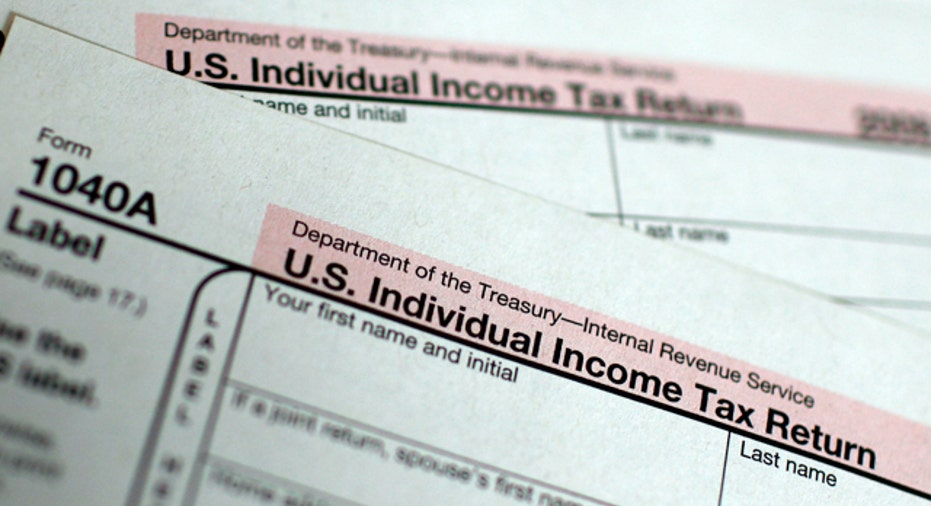Tax Relief for Record Year of Natural Disasters

The recent string of tornadoes that tore through 10 states, killing dozens of people and flattening neighborhoods, capped a string of natural disasters that seems almost biblical in proportion.
In 2011, there were floods, twisters, droughts, wildfires and mudslides -- a record number of federally declared disasters, according to the Federal Emergency Management Agency. Last year FEMA issued 99 major disaster declarations, compared to the annual average of just 37 for the past 50 years -- and another 29 emergency declarations.
Hurricane Irene left damage up the East Coast in its wake. Tsunami waves hit Hawaii and California. Tornadoes touched down in Minnesota. Wildfires burned through Texas. (See the full list of 2011 disasters here. And the list continues: So far this year, FEMA has issued another seven major disaster declarations.
Amid these calamities, which cost far too many lives and more than $50 billion in damage, there is one small consolation: There's special tax relief for those affected by the natural disasters. That relief -- along with your insurance -- can help you to rebuild, but don't expect tax relief to truly offset what you've just lost.
The tax rules allow those affected to take casualty losses, to extend their filing deadlines, and, in some cases, to waive penalties and interest on taxes due. Businesses affected by these disasters may be able to expense repairs immediately rather than having to depreciate them over many years. The rules are spelled out online in the Internal Revenue Service's Publication 547 here.
If you lost your home, your business, or your grandmother's antique rugs, you'll go to your insurance first; the tax rules are a secondary benefit that will not really fill the gap for being uninsured or under-insured. You can claim casualty losses only if you itemize. You can take these losses for damage only if it wasn't reimbursed by your insurance. And the way that casualty losses are calculated for tax purposes is unlikely to be in your favor.
The calculation problem is a doozy, explains Anna Maria Galdieri, a certified public accountant in Oakland, California, who has worked closely with disaster victims since the 1991 Oakland firestorm, which burned thousands of homes. The tax rules say that you can't simply claim the replacement value for what you lost, but must value that loss at the lesser of its cost or the decline in its "fair market value" (that is, the difference in what it's worth now versus before the disaster).
So if you bought your house for $100,000 two decades ago, and before the disaster struck it was worth $600,000, and now it's a pile of uninsured rubble, what you'll claim is $100,000. In the case of antiques or other valuables, the calculation problem can get even more knotty -- especially if in the wake of the disaster you can't recall every item of value in your home.
"The government is not a good subsidy for disaster losses," Galdieri says. "The benefit that people get is not very great because they cannot remember what they had, and because of the ways of valuing the loss."
Unfortunately, too, because this is a deduction, you won't actually get back the amount you claim; a $100,000 deduction, in the 28% tax bracket, for example, is worth $28,000.
Still, that's better than nothing, and this is a last resort, after you've already gotten what you can from your insurance.
Mia Gerstel, a teacher in Westfield, New Jersey, who has been through a number of storms, recalls the one time she did qualify for tax benefits. She was living in Florida and her roof sprang a leak during a tropical storm in 2008. "It was raining in my living room during that storm," she recalls, "and I vaguely recall the accountant saying we could write it off on taxes."
Kathy Pickering, executive director of the Tax Institute at H&R Block, which is based in Kansas City -- a few hours drive from Joplin, Missouri, where a deadly tornado hit last April -- says that to claim any disaster-related losses, the place has to be officially declared a disaster.
With the record number of disasters in 2011, "that's been a big issue that people have to deal with this year," she says.
The recent storms and tornadoes devastated parts of Kentucky, and seven counties were declared a federal disaster area by President Barack Obama. The tax relief goes to those seven counties. If you were hit, you can postpone filing your 2011 taxes until May 31st, and can wait until that date to pay your taxes (for 2011 and for any estimated taxes normally due in April); you can also continue to make contributions to your 2011 Individual Retirement Account until that date. Also, if you were affected, and get a penalty notice from the IRS, call the phone number on the notice and ask for the penalty to be waived. The IRS spells out the details here.
If you lost your home or your property, and need cash to rebuild fast, you can amend your previous year's tax return to get at some money quicker. In the case of the recent tornadoes, that means putting the claim on your 2011 taxes rather than waiting till the 2012 ones are due. If you do this, note the disaster at the top of the form so the IRS can expedite your refund. If you are affected by any of the last year's natural disasters, the same rule applies: You could choose to amend your 2010 return at any point before April 17th, rather than making the claim on this year's return.
It's not going to get your life back -- but in times of disaster, everything you can get helps. (Editing by Lauren Young and Andrea Evans)



















